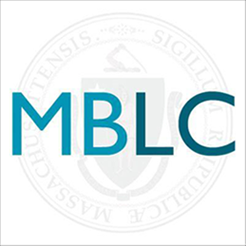By Judi Paradis, Librarian at Thomas R. Plympton Elementary School
The Special Commission on School Library Services in Massachusetts submitted its final report to the Legislature this month. George Comeau served on this Commission representing the Massachusetts Board of Library Commissioners. The report of the Commission includes key findings regarding equity and access issues in the Commonwealth’s school libraries. The Commission provided legislators with a series of recommendations for improving equity in Massachusetts public schools, and provided a comprehensive plan and timeline for their implementation. In a letter to the Massachusetts Legislature, the Commissioners urged legislators to accept their recommendations and work with DESE to ensure their implementation.
The Commission, which included legislators, members of the library and educational communities, and community members, contacted two respected researchers to conduct a comprehensive academic study to evaluate school library programs for equity using a series of data points specified in legislation passed by the Massachusetts Senate in 2013 (Bill S. 1906). The leading researcher, Dr. Carol A. Gordon, is a retired Associate Professor in the Department of Library and Information Science at Rutgers University where she served as the Co-Director of the Center for International Scholarship in School Libraries (CISSL). She was assisted by Dr. Robin Cicchetti, Head Librarian at Concord-Carlisle Regional High School. The study was distributed by the Massachusetts Department of Elementary and Secondary Education (DESE), and data analysis assistance was provided by CISSL.
The Massachusetts School Library Study: Equity ad Access for Students in the Commonwealth provides a report of the research conducted by Drs. Gordon and Cicchetti along with five broad recommendations that as goals for a long-term plan. The complete report is available on the website of the Massachusetts Board of Library Commissioners and you can find it here. Analysis of the data and the resulting findings show there are statistically significant differences in measures of status and equity for students from urban and rural districts compared with students from suburban districts. Based on these findings, the Commission recommends:
Recommendation 1.0. Improve Access to School Libraries and School Librarians
- Recommendation 1A. Every public school in the Commonwealth of Massachusetts has a school library and a certified school librarian.
- Recommendation 1B. Establish the position and responsibilities of the School Library Curriculum Specialist at the Department of Elementary and Secondary Education.
- Recommendation 1C. Support a culture of inquiry in schools that sustains inquiry and resource-based learning, collaborative teaching, and the integration of digital technology to improve access for all students
Recommendation 2.0. Improve Access to Information Resources in School Libraries:
- Recommendation 2A. Increase access to print resources in school libraries.
- Recommendation 2B. Increase access to electronic resources in school libraries.
Recommendation 3.0. Improve Access to Information Technology:
- Recommendation 3A. Improve access to Internet and digital devices in school libraries.
- Recommendation 3B. Increase access to Information Technology through staffing.
Recommendation 4.0. Improve Access to Library Instruction and Help.
- Recommendation 4A. Promote best instructional practices in the school library.
Recommendation 5.0. Improve Access to Funding:
Funding cuts across all the dimensions of school librarianship. Guidelines for Budget Allocation and Expenditure should be developed to support Recommendations 1.0, 2.0, 3.0, and 4.0.
The Commission thanks The Massachusetts Board of Library Commissioners for providing support for this important work. We look forward to seeing our recommendations adopted to improve school library programs for all Massachusetts public school students.
